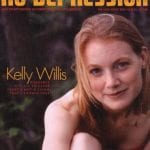Bobby Bare / Bobby Bare Jr. – Bobby Bares, all
Bobby: And they’re having fun while they’re doing it. That’s what makes it look easy. How much time was spent hittin’ on girls while they were playing those songs.
Bare: You didn’t have to hit on them. They hit on you. You know that.
Bobby: Or dealing with the girls?
Bare: Back then you didn’t have to deal with them.
Bobby: Right.
Bare: They’d just keep their mouth shut and sit there and wait for you to get loose.
ND: Do you feel like those parties made you all more competitive about writing better songs?
Bare: Oh, yeah. Absolutely. You knew where you were. After I got out of the Army and was goin’ around promoting records, I would come to Nashville and I’d have ten or fifteen songs. I remember one time at the old Andrew Jackson, me and Willie and Roger Miller, couple others, we were having a guitar pull. I’d listen to their songs, and by the time I listened to what they had, I had one song that I was proud enough of to sing.
Bobby: When you did Lullabys, did you think you were doing an Outlaw record?
Bare: No, I didn’t realize what I was into. I told Shel, when he was about to head down from Chicago that day to sing his songs to me, I said, “Let me go into the studio and try some of these and see how it comes off.” So I got Red Lane to play his gut rhythm, and Henry Strzelecki [bass] and Bobby Wood [piano], and I’d set up in the middle of the floor, because there was nothing loud about it, just me and a guitar.
Bobby: Doin’ demos?
Bare: Naw, doin’ the record. Red’s sitting right here, playing the gutstring, and I wasn’t in the isolation booth. That’s how we recorded it. I’m sitting out there with them, and they’re watching me. After that first [session] I realized that we was really into something that sounded so good, I said, “Yeah, let’s do all of it.” [RCA exec] Jerry Bradley — see I was just coming off “Ride Me Down Easy” which was a #2 record or something. [It went to #11 on the country charts.]
Bobby: So he gave you some freedom?
Bare: Yeah. Well, then he also said that if he’d found out what I was doing he’d have stopped it.
Bobby: Why?
Bare: Because it was too much of a departure.
Bobby: From “Ride Me Down Easy”?
Bare: From what he wanted me to be, yeah.
Bobby: Which was…
Bare: …the same thing over and over again.
Bobby: “Ride Me Down Easy” sounds…that’s not that big of a left-hand turn.
Bare: It wasn’t intended to be. I knew what they wanted me to do, and that was it. That type of stuff.
Bobby: “Ride Me Down Easy” is kind of funky, lyrically.
Bare: Yeah.
Bobby: Was that one of your songs? Did you have the publishing on that?
Bare: Yeah. Billy Joe [Shaver] wrote it.
Bobby: Damn that’s a good song. So you recorded that before Waylon did it.
ND: You cut Lullabys before he cut Honky Tonk Heroes.
Bare: Oh yeah, yeah. That’s where Waylon got the idea that he should produce his records. He saw what I was producing and figured he’d do his, too. So he did. I gave him one of the Billy Joe songs to sing because I published him.
Bobby: When you first met Waylon, in Phoenix, how cocky was he at that point?
Bare: He wasn’t.
Bobby: He wasn’t?
Bare: No, he was real, real humble, real gentle. Which is what he was, anyway. Waylon wasn’t an ass-kicking outlaw, he was a gentle person.
Bobby: With a great sense of humor.
Bare: Right. Right. He was a soft-spoken, kind, gentle person. Always was.
Bobby: What were his shows like?
Bare: Well, he always had that charisma. You know, and he was doin’ speed so he had that element of danger about him. Speed people do, you don’t know what they’re going to do next.
Bobby: What did you think the Outlaw movement was about?
Bare: It was just a PR thing. It came from that album, Wanted: The Outlaws. Neil Reshen was managing Waylon at the time, he just took that and ran with it. It was a PR thing.
Bobby: How did you trick RCA into letting you produce the Lullabys record?
Bare: No trick to it. I’d been at Mercury for two years. I’d been at RCA, and then Chet stopped producing, and went multitrack, Elvis was keeping him up all night cutting and he just quit all of that. And I wound up with three different producers on one album, each one of ’em fighting to get theirs out as a single. It drove me nuts. And I always wanted to do a record with Jerry Kennedy, so I went to Mercury for two years and worked with Kennedy; he was a great producer.
Then my deal was up, and Mercury was making changes of some sort, and I always stayed close with Chet. Chet and I became friends early on, and he was like my mentor. So Chet said, “Why don’t you come back to RCA?” And I told him the reason why I left. He knew that. He said, “Well, why don’t you produce your own records? Then you won’t have to fool with none of that.” He said, “I don’t think you’ll go crazy in the studio.”




